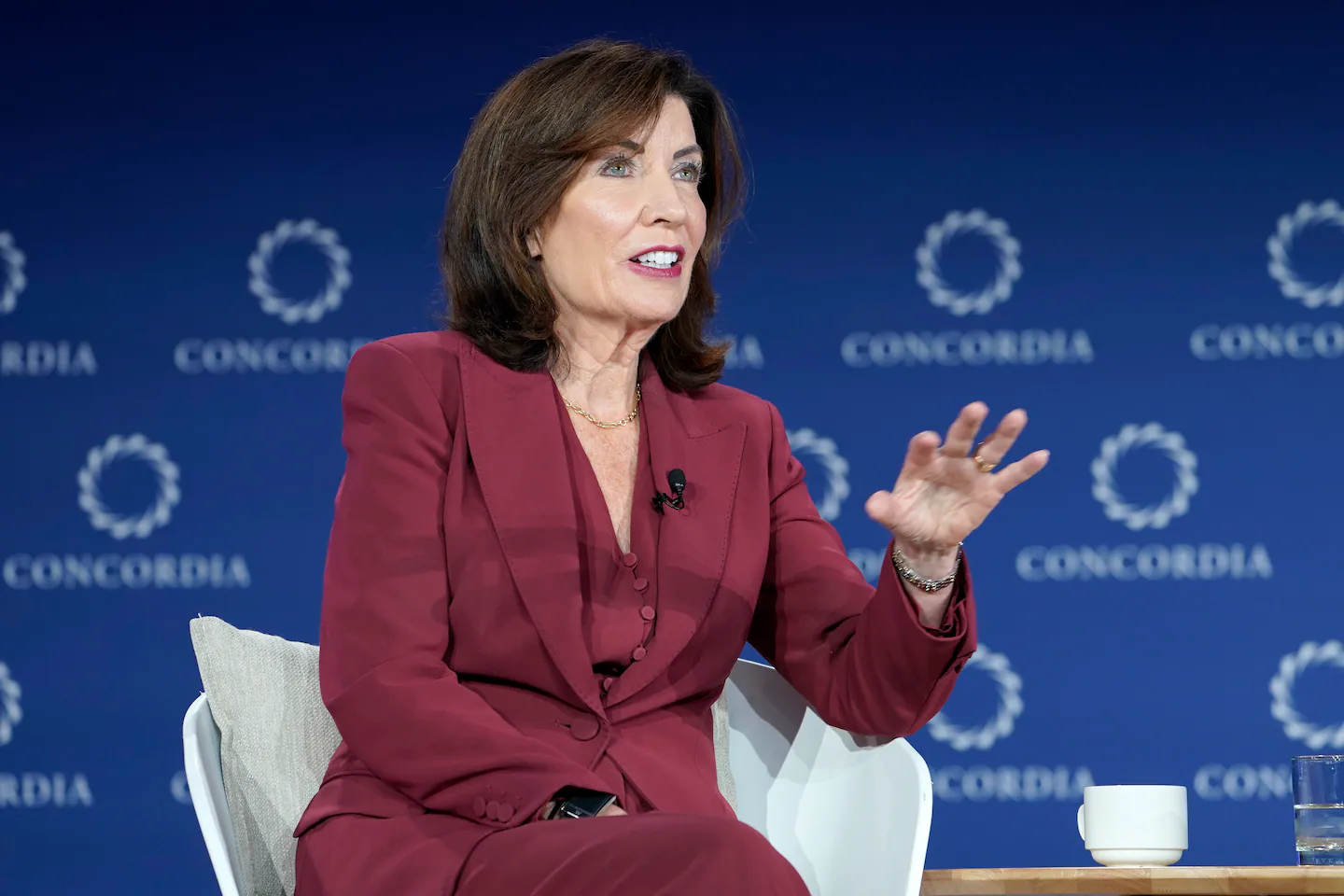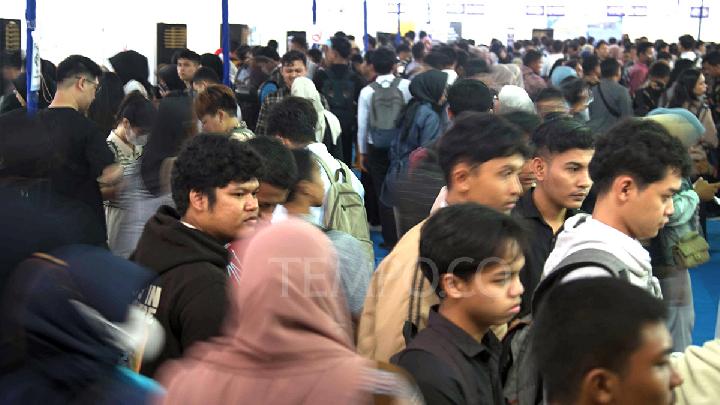
Duffy said that funds for the two projects would not be distributed while the Transportation Department reviewed what it described as New York state’s “discriminatory, unconstitutional contracting processes.”
The review was in response to President Trump’s executive orders this year targeting diversity, equity, and inclusion programs, Duffy said, and following a rule issued by the department Tuesday that forbids recipients of federal transit funds from mandating race- and sex-based contracting requirements.
The substantial funding freeze targeting the two projects also appeared to be intended to pressure Democrats to join Republicans in reopening the government. With Department of Transportation employees furloughed, the review could not begin, and federal funds could not be released for work already underway.
While federal funding for transit projects across the country could now be at risk, the department chose first to single out projects in the backyards of Representative Hakeem Jeffries, the Democratic House minority leader, and Senator Chuck Schumer, the minority leader, who have sparred with Trump over the shutdown.
As the Trump administration has begun carrying out its threats to freeze and claw back federal funds from states and cities that promote diversity initiatives or do not cooperate with it on federal immigration enforcement, New York has been a main target, with hundreds of millions of dollars withheld.
But this funding freeze is the largest yet in New York and could have potentially widespread effects, disrupting a regional economy dependent on the movement of residents and commuters.
Like other efforts by the Trump administration to withhold or delay federal funding to New York, the decision is likely to be challenged in court.
The decision has caused confusion among the agencies overseeing the projects, including the Metropolitan Transportation Authority, which is managing the subway extension project that was expected to be open in 2032.
“The federal government wants to immediately ‘review’ our compliance with rules they told us about moments ago,” John J. McCarthy, the chief of policy and external relations at the authority, said in a statement. “We’re reviewing their tweets and press releases like everyone else. For now, it looks like they’re just inventing excuses to delay one of the most important infrastructure projects in America.”
Duffy said that the review would be “quick” but could not yet begin because of the government shutdown.
Governor Kathy Hochul of New York described the announcement as the Trump administration’s latest salvo in its war on the state and its values. Earlier this week, Hochul said that the administration had cut an additional $100 million in counterterrorism funding in New York, following an earlier reduction of $87 million.
“They’ve decided to put their own interpretation of proper culture ahead of our needs, the needs of a nation,” Hochul, a Democrat, said at a news conference to discuss another topic involving Washington, the federal government shutdown. “You can’t make this up, folks. Just keeps getting worse and worse.”
It was not immediately clear whether the $18 billion involved just the Second Avenue Subway and the Gateway project or other initiatives as well.
New York Attorney General Letitia James, along with a coalition of other attorneys general, won a court order this week halting the Trump administration from cutting funds to antiterrorism and public safety projects.
Former president Joe Biden’s administration awarded the MTA $3.4 billion in federal funding in 2023 to extend the Q line on Second Avenue from the Upper East Side into Harlem and East Harlem, an expansion of a project that has been in the works for more than a century.
The first phase of the Second Avenue subway line opened in 2017 after a decade of construction, adding three stations on the Upper East Side in one of the most expensive transportation projects ever. The extension would add two additional stations into East Harlem.
“This is a hit against working-class New Yorkers and the working-class neighborhood of East Harlem,” Representative Adriano Espaillat, a Democrat who represents the area, said in an interview.
In 2024, the Biden administration awarded billions in grants and financing for the Gateway project, which would connect New Jersey and Pennsylvania Station in Manhattan with two additional tunnels, bringing the federal funding for the project to about $12 billion, about 70 percent of its total cost. The rest of the project would be provided by New York state and New Jersey.
The Gateway Development Commission, which oversees the tunnel project, did not learn of the suspension until after its monthly board meeting concluded Tuesday.
And at a Senate hearing in May, Duffy told Senator Kirsten Gillibrand of New York that he would not cancel federal grants that had been awarded for the two projects. “If you’re asking me if I plan on canceling those grant agreements, I do not,” he said.
It is unclear when the federal funding freeze could affect the infrastructure projects, which also have local backers. But the disruption, regardless of length, could have costly, long-term effects, said Tom Wright, president of the Regional Plan Association, an urban planning group.
The funding freeze could also set a dangerous precedent that could make private contractors wary of working on major public projects, without more and costlier assurances, he said.
And the longer the work is delayed, the higher the overrun costs will be. A month of delays could add tens of millions of dollars to the Hudson River project’s budget, Wright said.



